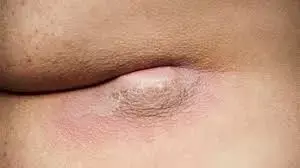- Home
- Medical news & Guidelines
- Anesthesiology
- Cardiology and CTVS
- Critical Care
- Dentistry
- Dermatology
- Diabetes and Endocrinology
- ENT
- Gastroenterology
- Medicine
- Nephrology
- Neurology
- Obstretics-Gynaecology
- Oncology
- Ophthalmology
- Orthopaedics
- Pediatrics-Neonatology
- Psychiatry
- Pulmonology
- Radiology
- Surgery
- Urology
- Laboratory Medicine
- Diet
- Nursing
- Paramedical
- Physiotherapy
- Health news
- Fact Check
- Bone Health Fact Check
- Brain Health Fact Check
- Cancer Related Fact Check
- Child Care Fact Check
- Dental and oral health fact check
- Diabetes and metabolic health fact check
- Diet and Nutrition Fact Check
- Eye and ENT Care Fact Check
- Fitness fact check
- Gut health fact check
- Heart health fact check
- Kidney health fact check
- Medical education fact check
- Men's health fact check
- Respiratory fact check
- Skin and hair care fact check
- Vaccine and Immunization fact check
- Women's health fact check
- AYUSH
- State News
- Andaman and Nicobar Islands
- Andhra Pradesh
- Arunachal Pradesh
- Assam
- Bihar
- Chandigarh
- Chattisgarh
- Dadra and Nagar Haveli
- Daman and Diu
- Delhi
- Goa
- Gujarat
- Haryana
- Himachal Pradesh
- Jammu & Kashmir
- Jharkhand
- Karnataka
- Kerala
- Ladakh
- Lakshadweep
- Madhya Pradesh
- Maharashtra
- Manipur
- Meghalaya
- Mizoram
- Nagaland
- Odisha
- Puducherry
- Punjab
- Rajasthan
- Sikkim
- Tamil Nadu
- Telangana
- Tripura
- Uttar Pradesh
- Uttrakhand
- West Bengal
- Medical Education
- Industry
Karydakis flap surgery is more effective for pilonidal sinus disease: Study

Karydakis flap surgery for pilonidal sinus disease is more effective than suture in the midline, according to a recent study published in the BJS Open.
There are several surgical options for the management of pilonidal disease, including midline and off midline closure, but prospective studies are rare. The study hypothesis was that Karydakis flap surgery would result in shorter wound healing and fewer recurrences than excision of pilonidal sinus and suture in the midline.
A randomized clinical trial was conducted in two hospitals in Sweden between 2006 and 2015 to compare excision and suture in the midline with Karydakis flap surgery. Adult patients with a chronic pilonidal sinus disease were randomized 1:1 at the outpatient clinic without blinding. Power calculation based on the recurrence of 2 per cent for Karydakis flap and 10 per cent for excision and primary closure in the midline required 400 patients with 90 per cent statistical power at 5 per cent significance assuming 10 per cent loss during follow-up. Participants were followed up until complete wound healing; late follow-up after 6–13 years was performed by telephone by two blinded assessors. The two co-primary outcomes were time to complete wound healing and recurrence rate.
Results:
The study was terminated early at a planned interim analysis due slow recruitment and a significant difference in the primary outcome. In total, 125 patients were randomized, of whom 116 were available for the present analysis. Median wound healing time was 49 days (95 per cent confidence interval (c.i.) 32 to 66) for excision with suture in the midline and 14 days (95 per cent c.i. 12 to 20) for Karydakis flap surgery (P < 0.001). There were five recurrences in each group, after a median follow-up of 11 years (P = 0.753).
Thus, Karydakis flap surgery for pilonidal sinus disease led to a shorter wound healing time than excision and suture in the midline but no difference in recurrence rates.
Reference:
Excision and suture in the midline versus Karydakis flap surgery for pilonidal sinus: randomized clinical trial by Oskar Hemmingsson, et al. published in the BJS Open.
https://academic.oup.com/bjsopen/article/6/2/zrac007/6548827
Dr. Shravani Dali has completed her BDS from Pravara institute of medical sciences, loni. Following which she extensively worked in the healthcare sector for 2+ years. She has been actively involved in writing blogs in field of health and wellness. Currently she is pursuing her Masters of public health-health administration from Tata institute of social sciences. She can be contacted at editorial@medicaldialogues.in.
Dr Kamal Kant Kohli-MBBS, DTCD- a chest specialist with more than 30 years of practice and a flair for writing clinical articles, Dr Kamal Kant Kohli joined Medical Dialogues as a Chief Editor of Medical News. Besides writing articles, as an editor, he proofreads and verifies all the medical content published on Medical Dialogues including those coming from journals, studies,medical conferences,guidelines etc. Email: drkohli@medicaldialogues.in. Contact no. 011-43720751


